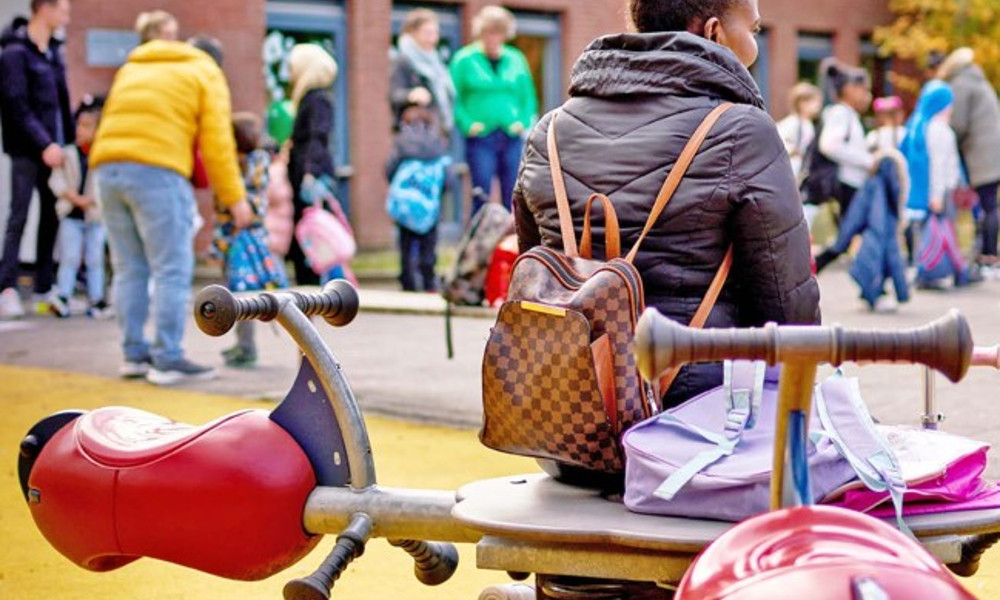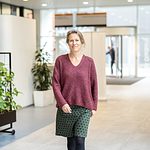Bridge officer: equal opportunities for all children
Meer info- Research stories

One in five children grows up in poverty, and that number will only increase due to inflation and the energy crisis. Bridge officers (go-betweens for schools, children and parents) in Groningen have been putting their hearts and souls into Equal opportunities for all children for more than ten years. Wenda Gall, Mariska de Peuter and Inge Ekenhorst explain that you can make a difference at the intersection of education and healthcare.
Groningen started a project with two bridge officers at primary schools in the Selwerd and Paddepoel districts in 2011. There are now 21 active 'bridgers'. They are the listening ear for parents and, with access to many funds, take care of practical matters. Inge Ekenhorst is a researcher at the Youth, Education and Society research group and does all kinds of projects related to growing up in poverty. 'I really see the added value of a bridge officer, because to tell someone you need help isn’t always easy. The bridge officer is very accessible. Children simply see the bridger as a teacher at school. The person who builds a bridge between school, child and family.'
'The bridge officer is also the link to other aid agencies,’ Mariska de Peuter adds. Mariska is involved from the Pabo-Social Work/Care programme, a variant of the primary school teacher training programme of the Pedagogical Academy (PA) in which the student becomes a regular teacher, but has extra knowledge and skills at the intersection of education and care. 'Parents often have to go to support agencies. The bridge officer can also play an important role in this,' Mariska explains.
Together with Wenda Gall, Inge Ekenhorst is developing the course option Poverty for the training of bridge officers. Wenda works as a bridge officer at cbds De Tamrisk in Groningen and as a school contact at the Youth Education Fund. Since this school year, she has also been a teacher at the Hanze. Wenda: 'We have an eye for the child's living environment, for the family. Because if the parents are not doing well, the child is not doing well either. Poverty causes stress, also for children. When children get in touch with things that are not common in their own home or for which there is no money also stimulates their brain development. Parents are keen to do well, but sometimes fear that their children will be placed out of their home if they fail. Having a chat with someone in the schoolyard feels more familiar than calling a help agency.'
There is no training for bridge officers, but poverty is included in the curriculum at the Pabo-Social Work/Care. Bridge officers give guest lectures, for example during inspiration days, which are also open to other PA students. To inspire incumbent bridge officers, HanzePro develops modules. Mariska: 'The background of bridge officers is very diverse. Some come from education and therefore understand very well how education works, but there are also people who come from a completely different practice. As a result, the learning needs of the bridge officers differ considerably. Where one person needs a lot of knowledge of the social map, the other needs in-depth knowledge about poverty. We are researching what the needs are and we’re developing modules on poverty and parental involvement.'
'We are developing a menu that bridge officers can choose from to gain more in-depth knowledge. Knowledge about which funds are available, for example, or what the social map of Groningen looks like,' Wenda explains. 'But above all: how to make contact. For example, they can stand in the schoolyard and try to filter out all the people who could use a helping hand. These are aspects they can use tools for. And, by the way, it is a misunderstanding that the bridger only supports in cases of poverty. It's about scarcity and that can be in all kinds of areas. It can be attention, love or safety. It gives teachers space when bridgers take up these issues. Teachers identify a lot, but often don't know what to do with those signals. Very understandable if you didn't have that in your training. When I arrive at school in the morning, I first make coffee and tea and make a round of the teachers. This way I often hear if something is wrong. If it’s a problem that we can do something about, we figure out what we can do together.'
'Our students are also looking for what they can do to promote children's learning and development in the best possible way,' Wenda continues. 'A student told me about a dilemma during her internship that had made an indelible impression on her. The teacher did not allow her to give a child who came to school on an empty stomach bread, only a tomato. The student knew what to do with the situation, because we give them tools about how to act at such a moment. Our motivation is that everyone gets equal opportunities. As long as we find that common denominator, together we can make a difference for many children.'

Lector Jeugd & Leefomgeving
Zernikeplein 9, 9747 AS Groningen
How satisfied are you with the information on this page?